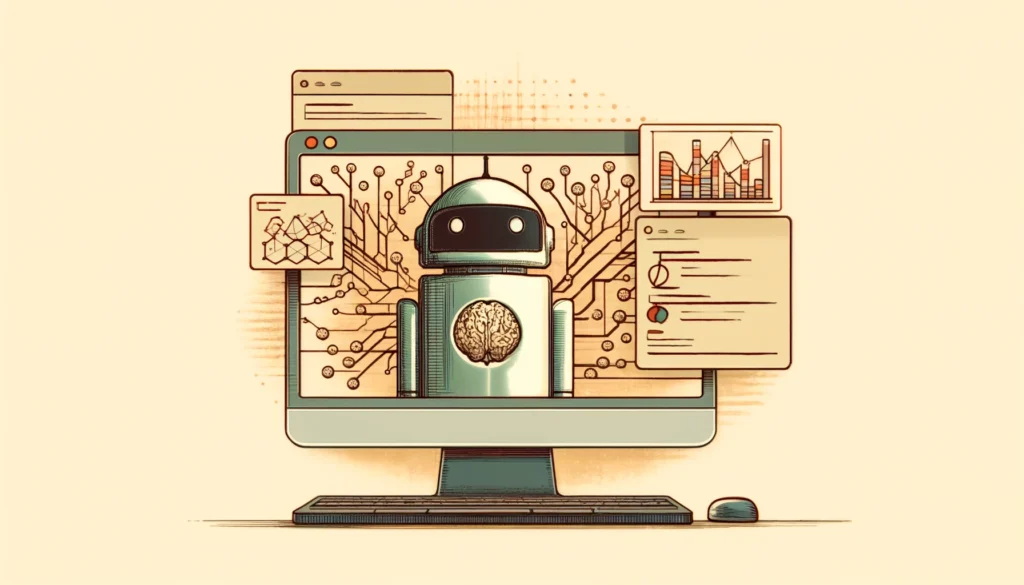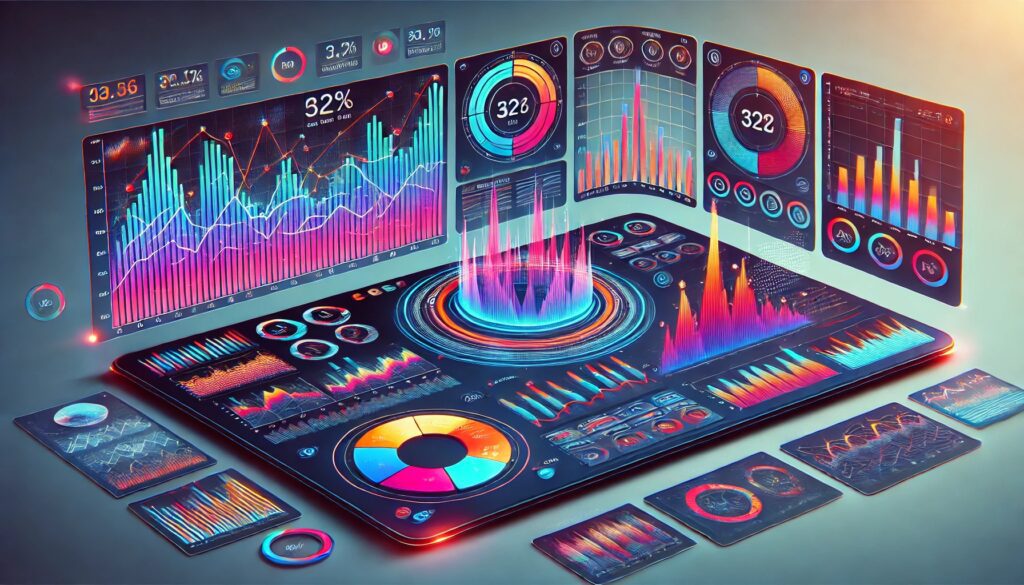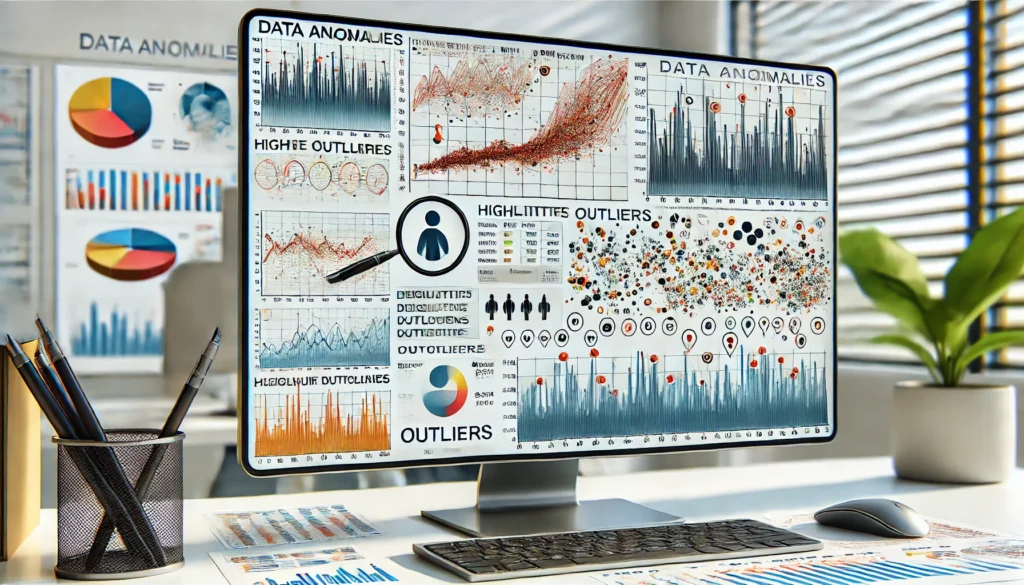
Artificial Intelligence (AI) is shaping careers and industries worldwide. But how do you future-proof yourself in this ever-evolving field? Whether you’re a beginner, mid-career professional, or an AI specialist, this roadmap will guide you through the essential skills, tools, and certifications to thrive in AI over the next decade.
- Understanding the Foundations of AI
- Essential AI Skills for Mid-Career Professionals
- Advanced Strategies for AI Specialists
- Future-Proofing Your AI Career
- The Human Side of AI: Why Soft Skills Still Matter
- Career-Specific AI Niches to Explore
- Deep Dive into Specific AI Niches
- Tools and Certifications to Master AI Niches
- Resources
- General AI Foundations
- Cybersecurity AI
- Sustainability AI
- Healthcare AI
- Smart Cities AI
- Creative Industries AI
Understanding the Foundations of AI
What Exactly is AI, and Why Should You Care?
AI refers to systems or machines capable of mimicking human intelligence to perform tasks. From chatbots to autonomous vehicles, it’s everywhere. And with AI projected to contribute $15.7 trillion to the global economy by 2030, the demand for AI expertise is skyrocketing.
AI careers aren’t just for tech geeks anymore—they’re for anyone willing to adapt and learn.
Key AI Concepts Beginners Should Master
If you’re new to AI, start with the fundamentals:
- Machine Learning (ML): The backbone of AI systems.
- Natural Language Processing (NLP): The tech behind virtual assistants like Siri.
- Neural Networks: How machines learn patterns, from speech to images.
Tools like Google Colab and free courses on Coursera or edX can get you started without a hefty price tag.
Popular Entry-Level Certifications to Explore
Certifications validate your expertise and boost credibility. For beginners:
- IBM AI Engineering Professional Certificate
- Microsoft AI Fundamentals (AI-900)
- DeepLearning.AI’s Machine Learning Specialization
Each of these courses combines theory with hands-on projects, giving you the chance to build a portfolio.
Essential AI Skills for Mid-Career Professionals
Why Upskilling is No Longer Optional
Stuck in a routine tech role? Upskilling to AI expertise could mean a salary bump and better job security. AI-related jobs pay 20-50% more than traditional IT roles.
Advanced AI Skills You Need to Acquire
Once you’ve nailed the basics, delve deeper into:
- Deep Learning Frameworks: PyTorch, TensorFlow
- Data Engineering: Tools like Apache Spark and Hadoop
- Model Optimization: Making AI systems faster and cost-effective
Practical application matters. Build projects like predictive analytics models or chatbots using open datasets from Kaggle to demonstrate these skills.
Which Certifications Will Propel Your Career?
- Google Professional Machine Learning Engineer
- AWS Certified Machine Learning – Specialty
- Stanford Online’s AI Graduate Certificate
These certifications demand hands-on experience, making them ideal for professionals looking to level up.
Emerging Tools to Add to Your Toolkit
- AutoML platforms like H2O.ai to simplify ML workflows.
- GitHub Copilot for writing smarter code.
- AI-powered project management tools for cross-disciplinary collaboration.
Each of these tools enhances productivity and bridges the gap between technical work and business outcomes.
Advanced Strategies for AI Specialists
Keeping Up with AI Innovation: A Specialist’s Challenge
For AI specialists, the challenge isn’t learning the basics—it’s staying ahead of the curve. With breakthroughs like generative AI and quantum machine learning, the field is evolving faster than ever. Continuous learning is key to staying relevant.
What to Focus On:
- Emerging Research Areas: Dive into reinforcement learning, adversarial networks, and AI ethics.
- Quantum Computing: Gain familiarity with platforms like IBM Quantum or Google’s Cirq.
- AI Governance: Develop a solid understanding of AI laws and frameworks like GDPR and AI Act in the EU.
These advanced topics are shaping the next generation of AI systems.
The Certifications That Differentiate Experts
Even for specialists, certifications are a mark of distinction. Consider:
- MIT Professional Certificate in AI and Machine Learning
- Stanford’s Advanced Computer Vision Specialization
- OpenAI Developer Certification (anticipated soon as generative AI adoption grows)
These advanced courses delve deeper into niche technologies and hands-on applications, helping you stand out as a leader in the field.
Mastering Leadership in AI Projects
Specialists often transition to leading AI teams or designing large-scale solutions. Success here depends on:
- Cross-Disciplinary Collaboration: Bridging the gap between data science and business goals.
- Scalable AI Deployment: Tools like MLOps frameworks (Kubeflow, MLflow) streamline the pipeline from prototyping to production.
- Mentorship: Grooming the next generation of AI talent ensures long-term success for teams and projects.
Future-Proofing Your AI Career
Tools to Watch in the Next Decade
Stay ahead by mastering tools and platforms poised to dominate the AI landscape:
- Generative AI Models: Think GPT-5, DALL-E, and their competitors.
- AI-Driven Decision Platforms: Tools like DataRobot or MonkeyLearn simplify insights extraction.
- Edge AI Development Kits: NVIDIA Jetson and Google Coral are critical as computation shifts to edge devices.
Adapting early gives you an edge in a competitive field.
Networking in the AI Community
As an AI specialist, your network is as valuable as your knowledge. Join:
- AI conferences like NeurIPS, ICML, or CVPR to engage with cutting-edge research.
- Online communities (Reddit’s r/MachineLearning, AI Slack groups) to discuss trends and exchange ideas.
- Hackathons that challenge you with real-world problems and build camaraderie with peers.
Networking ensures you’re always learning from the best.
The Human Side of AI: Why Soft Skills Still Matter
AI Specialists Need Emotional Intelligence Too
Yes, even experts need soft skills. AI is about solving human problems, and specialists must communicate clearly and empathetically.
Key Soft Skills to Hone:
- Complex Problem-Solving: Breaking down vague issues into AI-solvable parts.
- Leadership: Influencing decision-makers and team dynamics.
- Ethical Considerations: Leading conversations about bias, transparency, and AI’s societal impact.
Building Trust with Non-Technical Stakeholders
Many AI projects fail because business leaders don’t understand their potential. As an AI expert, simplify jargon and relate solutions to tangible benefits like increased revenue, time savings, or customer satisfaction.
Career-Specific AI Niches to Explore
AI has permeated nearly every industry, creating specialized career paths for professionals at all levels. Whether you’re fascinated by robotics, finance, healthcare, or entertainment, there’s a niche AI career waiting for you. Here’s a deep dive into the most promising domains.
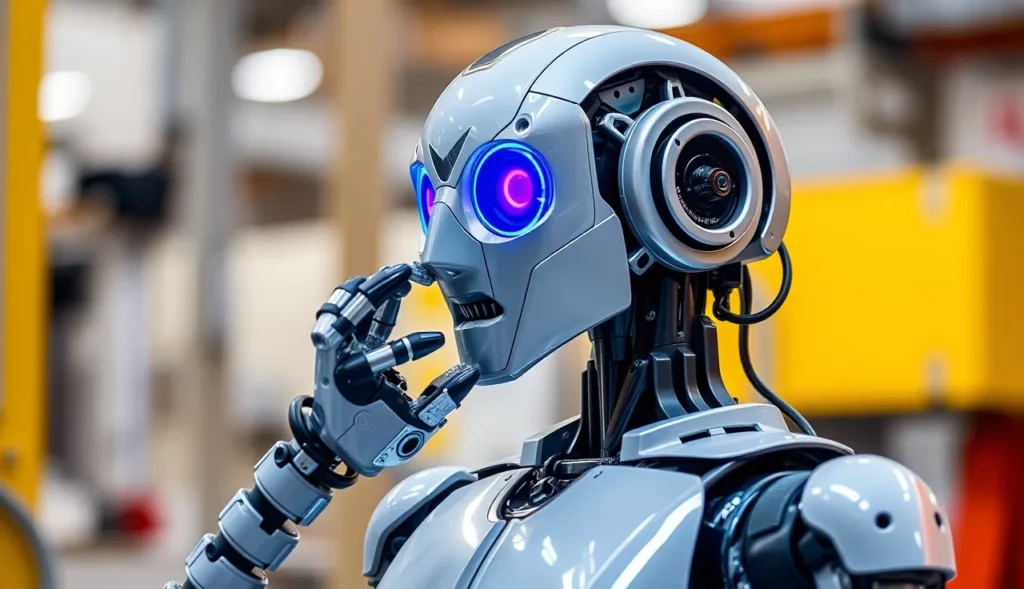
Robotics and Automation
The Role of AI in Robotics
Robotics is at the cutting edge of AI-driven automation. From factory assembly lines to autonomous drones, AI enables machines to adapt, learn, and improve performance in real-time.
Career Opportunities in Robotics AI
- Robotics Engineer: Focus on designing robots and integrating AI systems.
- Computer Vision Specialist: Develop AI for object recognition in robots.
- Autonomous Systems Developer: Work on self-driving cars and delivery drones.
Skills and Tools to Master
- Programming: C++, Python, ROS (Robot Operating System)
- AI Tools: TensorFlow, PyTorch, OpenCV
- Certifications:
- Stanford Online: Introduction to Robotics
- NVIDIA’s Robotics AI Essentials
Natural Language Processing (NLP)
Why NLP is Booming
From voice assistants to AI-driven translation, NLP is transforming how humans interact with machines. With the rise of generative AI like ChatGPT, demand for NLP professionals is skyrocketing.
Career Paths in NLP
- NLP Engineer: Create algorithms to process and analyze human language.
- Speech Recognition Developer: Work on applications like Siri, Alexa, or Google Assistant.
- Sentiment Analysis Specialist: Help businesses understand customer emotions through text analysis.
Tools, Certifications, and Skills
- Frameworks: Hugging Face, NLTK, spaCy
- Skills: Linguistics, Deep Learning, Text Preprocessing
- Courses:
- DeepLearning.AI’s NLP Specialization
- AWS Certified NLP Specialty
AI in Finance
AI’s Transformative Role in Finance
AI is revolutionizing financial services with fraud detection, algorithmic trading, and personalized financial advice. Fintech companies are especially eager for AI talent to innovate faster.
Career Opportunities
- Quantitative Analyst: Use AI to build trading algorithms.
- Fraud Detection Analyst: Develop ML systems to spot suspicious financial activities.
- Risk Management Specialist: Leverage AI for predictive risk assessment in lending or investments.
Must-Have Skills
- Programming: Python, R
- Tools: MATLAB, Scikit-learn, Bloomberg APIs
- Certifications:
- CFA Institute’s AI in Finance Program
- MIT’s Applied AI in Finance Course
AI in Healthcare
How AI is Saving Lives
AI is reshaping healthcare through predictive diagnostics, drug discovery, and medical imaging. By analyzing vast datasets, AI enables faster and more accurate diagnoses.
AI Career Paths in Healthcare
- Biomedical Data Scientist: Analyze patient data for disease prediction.
- Imaging Specialist: Apply computer vision to interpret MRIs or CT scans.
- Healthcare AI Consultant: Help hospitals and clinics integrate AI solutions.
Skills and Resources to Excel
- Skills: Biostatistics, Data Engineering
- Tools: IBM Watson Health, TensorFlow, Apache Spark
- Certifications:
- Stanford Medicine’s AI in Healthcare Certificate
- Coursera’s AI for Medicine Specialization
AI in Entertainment and Gaming
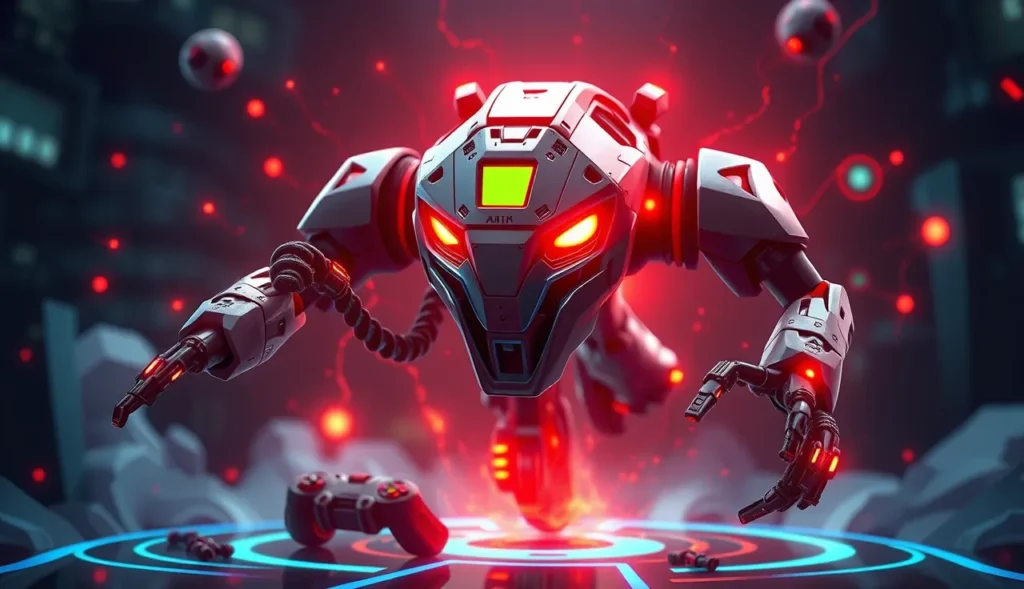
Bringing Creativity to AI
AI powers recommendation engines, virtual reality, and procedural content creation in entertainment. In gaming, AI enhances realism and player engagement through adaptive NPCs and game design automation.
Career Opportunities
- AI Game Developer: Build AI systems for smarter NPCs and procedural content.
- Content Recommendation Specialist: Optimize platforms like Netflix or Spotify.
- Virtual Reality AI Specialist: Create immersive experiences using AI.
Tools and Skills to Master
- Skills: Unity, Unreal Engine, Reinforcement Learning
- AI Platforms: OpenAI, DeepMind APIs
- Certifications:
- Unity AI Programming Courses
- DeepMind’s Reinforcement Learning Tutorials
Breaking into AI Niches
Steps to Specialize in Your Niche
- Choose a Domain: Pick an industry that matches your interests and aligns with market demand.
- Build Domain Expertise: Study industry-specific problems and trends.
- Gain Hands-On Experience: Start niche projects using open datasets (e.g., Kaggle for finance or healthcare).
- Network with Specialists: Join industry-focused forums, LinkedIn groups, and attend niche AI conferences.
Top Platforms for Learning Specialized AI Skills
- Udemy: Niche-specific AI courses for beginners.
- Coursera: Certifications from top universities.
- Kaggle: Hands-on challenges for industry problems.
Deep Dive into Specific AI Niches
AI’s adaptability allows it to transform specialized fields, from cybersecurity to sustainability. Let’s take a closer look at how AI is reshaping these niches, career paths, and skills you’ll need to excel.
AI in Cybersecurity
Why AI is Critical for Cybersecurity
Cyberattacks are becoming more sophisticated. AI steps in by detecting threats, analyzing vulnerabilities, and even neutralizing attacks in real-time. With global cybercrime projected to cost $10.5 trillion annually by 2025, cybersecurity AI is in high demand.
Career Paths in AI Cybersecurity
- Threat Intelligence Analyst: Use AI to predict and prevent attacks.
- Incident Response Specialist: Develop systems to automate the response to cyber threats.
- AI Security Engineer: Create AI-driven security architectures.
Key Skills and Tools
- Programming: Python, Java
- Tools:
- SIEM systems (Splunk, IBM QRadar)
- AI tools like Darktrace and Cylance
- Certifications:
- Certified Ethical Hacker (CEH)
- MIT Cybersecurity with AI
Emerging Trends
- AI vs. AI Warfare: Combat malicious AI systems with defensive AI.
- Behavioral Analytics: Detect abnormal user behavior using ML.
AI for Environmental Sustainability
How AI is Saving the Planet
AI addresses environmental challenges by optimizing energy consumption, improving resource management, and modeling climate change impacts. Tech giants like Google and Microsoft are investing heavily in AI for sustainability.
Career Opportunities in Sustainability AI
- Climate Data Scientist: Analyze weather patterns and predict climate change effects.
- Energy Efficiency Analyst: Use AI to optimize renewable energy systems.
- Wildlife Conservation AI Specialist: Monitor endangered species through AI-powered image recognition.
Tools and Skills to Learn
- Skills: Remote sensing, GIS analysis
- Tools: TensorFlow, Google Earth Engine, ClimateAI
- Certifications:
- Stanford’s AI for Climate Change Certificate
- World Bank’s Sustainable AI Initiatives
Example Applications
- Predictive Maintenance: AI-powered wind turbines reduce downtime.
- Smart Agriculture: Systems like IBM’s Watson optimize crop yields while minimizing resource use.
AI in Healthcare Diagnostics
Revolutionizing Medical Outcomes
AI doesn’t just assist doctors—it can outperform them in areas like disease detection and drug discovery. With AI, MRI interpretation and cancer detection become faster, cheaper, and more accurate.
Career Paths in Diagnostic AI
- Medical Imaging Analyst: Use AI to analyze X-rays, MRIs, and CT scans.
- Drug Discovery Specialist: Implement ML to discover new drug compounds.
- Predictive Healthcare Analyst: Build models to forecast patient outcomes.
Skills and Tools to Master
- Skills: Biostatistics, Data Labeling
- Tools: IBM Watson Health, Zebra Medical Vision, NVIDIA Clara
- Certifications:
- AI in Medicine Specialization (Coursera)
- MIT’s Healthcare AI Innovations
Real-World Impact
- AI systems like DeepMind’s AlphaFold have revolutionized protein structure prediction, speeding up drug discovery.
AI in Smart Cities
Building Smarter, More Efficient Cities
Smart cities rely on AI to improve urban planning, transportation systems, and waste management. By 2030, smart city technologies are expected to manage 70% of urban populations globally.
Career Opportunities
- Smart Transportation Specialist: Optimize traffic flow and public transport routes with AI.
- IoT Systems Developer: Create AI-enabled IoT devices for energy-efficient buildings.
- Urban Data Analyst: Leverage AI to analyze urban data for better planning.
Key Skills and Tools
- Programming: Python, R
- Tools: SAS Urban Analytics, MATLAB, OpenAI APIs
- Certifications:
- IoT for Smart Cities (edX)
- MIT’s AI and Urban Planning Certificate
Innovations to Watch
- Predictive Traffic Systems: AI tools like Waycare reduce congestion.
- AI in Waste Management: Smart bins sort recyclables using computer vision.
AI in Creative Industries
Making Art and Stories Smarter
AI is transforming creative fields like filmmaking, music, and literature. Generative AI tools create realistic visuals, compose music, and even write scripts, enabling a new era of collaboration between humans and machines.
Career Paths in Creative AI
- AI Content Creator: Use AI tools to produce music, artwork, or stories.
- Generative Model Developer: Build models like GPT-4 or DALL-E for creative applications.
- Interactive AI Designer: Create immersive experiences for gaming or virtual reality.
Must-Have Skills
- Tools: OpenAI’s DALL-E, Adobe Sensei, Runway ML
- Skills: Generative algorithms, creative workflows
- Certifications:
- NYU’s AI in Arts and Creativity
- Udemy’s Generative AI for Artists
Real-World Examples
- AI-generated visuals in movies like The Lion King (2019).
- Virtual influencers powered by AI, such as Lil Miquela.
Choosing Your AI Niche
When selecting an AI niche, consider:
- Passion: Does the field excite you?
- Market Demand: Is it growing rapidly?
- Transferable Skills: Can you pivot easily between roles?
Tools and Certifications to Master AI Niches
Each AI niche requires specific tools and certifications to build expertise, credibility, and hands-on experience. Below is a detailed guide to the most relevant tools and certifications for some of the most promising niches in AI.
Tools and Certifications for AI in Cybersecurity
Key Tools
- Darktrace
- An AI-driven threat detection platform for network security.
- Uses unsupervised learning to identify anomalies in real-time.
- Splunk
- A tool for analyzing and visualizing machine data.
- Integrates AI to automate monitoring and threat detection.
- IBM QRadar
- A robust SIEM (Security Information and Event Management) system.
- Includes AI for advanced incident response.
- Cylance
- AI-based endpoint protection software.
- Uses predictive AI to block threats before they execute.
Certifications
- Certified Ethical Hacker (CEH)
- Focuses on ethical hacking techniques and security analysis.
- Includes modules on using AI to identify vulnerabilities.
- CompTIA Cybersecurity Analyst (CySA+)
- Covers AI-driven tools for threat detection and response.
- MIT Professional Certificate in AI for Cybersecurity
- Focuses on applying machine learning for predictive threat analysis.
Tools and Certifications for AI in Sustainability
Key Tools
- Google Earth Engine
- A cloud-based platform for geospatial analysis.
- Ideal for monitoring deforestation, urban expansion, and climate change.
- TensorFlow
- Offers pre-trained models for sustainability projects, like energy optimization.
- ClimateAI
- A platform for using AI to analyze climate risks and agricultural trends.
- DroneDeploy
- AI software for aerial imagery analysis in agriculture and forestry.
Certifications
- Stanford’s AI for Climate Change Certificate
- Explores AI applications in combating environmental challenges.
- Microsoft AI for Earth Grant Program
- Offers free resources and training for projects focused on sustainability.
- Coursera’s AI for Sustainable Development Goals (SDGs)
- Aligns AI skills with the UN’s SDGs, such as clean energy and water management.
Tools and Certifications for AI in Healthcare Diagnostics
Key Tools
- IBM Watson Health
- A leading AI tool for healthcare analytics.
- Includes pre-built models for diagnostics and patient management.
- NVIDIA Clara
- A platform for medical imaging and genomics.
- Supports AI workflows in radiology and pathology.
- Zebra Medical Vision
- Offers AI tools for interpreting imaging data, including X-rays and CT scans.
- DeepMind’s AlphaFold
- Revolutionizes protein structure prediction for drug discovery.
Certifications
- AI in Medicine Specialization (Coursera)
- Covers disease detection, diagnosis prediction, and patient care optimization.
- Stanford Medicine’s AI in Healthcare Certificate
- Focuses on integrating AI into clinical decision-making.
- Health Informatics AI Certification by HIMSS
- Combines AI training with healthcare data standards and analytics.
Tools and Certifications for AI in Smart Cities
Key Tools
- MATLAB Urban Analytics Toolbox
- Ideal for modeling and optimizing urban systems.
- Waycare
- AI-powered traffic management platform that predicts congestion and incidents.
- IoT Platforms:
- Google Cloud IoT Core and Microsoft Azure IoT Hub integrate AI with IoT devices for smart infrastructure.
- OpenAI APIs
- Useful for natural language processing in smart city customer service systems.
Certifications
- IoT for Smart Cities (edX)
- Teaches AI and IoT integration for sustainable urban systems.
- MIT’s AI and Urban Planning Certificate
- Explores how AI can improve urban transportation and resource management.
- AWS IoT Core Training
- Specializes in IoT and AI integration for smart city projects.
Tools and Certifications for AI in Creative Industries
Key Tools
- Runway ML
- A creative tool for generating videos, images, and music using AI.
- OpenAI’s DALL-E
- Creates stunning visuals from text prompts, useful for graphic design and advertising.
- Adobe Sensei
- AI-enhanced creative cloud tools for image editing and content creation.
- Unity and Unreal Engine
- Both platforms integrate AI to build interactive gaming and VR experiences.
Certifications
- NYU’s AI in Arts and Creativity Program
- Explores AI-driven storytelling, art creation, and design.
- Udemy’s Generative AI for Artists
- Focuses on tools like DALL-E and Runway ML for creative applications.
- DeepMind’s Reinforcement Learning Courses
- Teaches how to design AI systems for gaming and adaptive NPC behavior.
Common Certifications for Any AI Niche
If you want flexibility to transition between niches, these certifications provide a solid AI foundation:
- DeepLearning.AI’s Machine Learning Specialization (Coursera)
- Taught by Andrew Ng, it’s perfect for mastering machine learning basics.
- Google Professional Machine Learning Engineer
- Industry-recognized for implementing ML models in production environments.
- AWS Certified Machine Learning – Specialty
- Comprehensive coverage of ML workflows, cloud computing, and AI integration.
- MIT’s AI: Implications for Business Strategy
- Perfect for bridging technical expertise and business goals in any niche.
Summary
Each AI niche has tailored tools and certifications to help you excel, but many foundational skills—like understanding Python, TensorFlow, and machine learning concepts—remain universal. Dive into niche-specific tools while earning certifications that highlight your expertise, and you’ll stay competitive in this evolving field.
Resources
General AI Foundations
Courses
- Machine Learning by Stanford (Coursera)
- Taught by Andrew Ng, this is the go-to course for beginners.
- Covers foundational algorithms like linear regression and neural networks.
- Enroll Here
- DeepLearning.AI TensorFlow Developer Specialization (Coursera)
- Focuses on TensorFlow, the most popular AI framework.
- Includes hands-on projects like image classification and text generation.
- Enroll Here
Books
- “Hands-On Machine Learning with Scikit-Learn, Keras, and TensorFlow” by Aurélien Géron
- A practical guide to building AI models with Python.
- “Deep Learning” by Ian Goodfellow, Yoshua Bengio, and Aaron Courville
- A comprehensive resource for understanding deep learning algorithms.
Cybersecurity AI
Online Resources
- MIT Cybersecurity with AI (Professional Education)
- Learn to implement AI for threat detection and cyber defense.
- Cybrary: AI for Cybersecurity
- Offers free and paid courses on AI tools like Splunk and IBM QRadar.
- Visit Cybrary
Tools Documentation
- Splunk AI & Machine Learning Toolkit
- Provides tutorials and examples for using AI to enhance threat detection.
- Darktrace Resources
- Case studies and whitepapers on using AI for real-time cybersecurity.
Sustainability AI
Online Courses
- Stanford Online: AI for Climate Change
- Focuses on using AI to solve environmental problems.
- Learn More
- Google Earth Engine Training
- Free tutorials on analyzing satellite data for sustainability projects.
Open Datasets
- Climate Data Store
- Free datasets for modeling weather, climate, and energy systems.
- Kaggle Sustainability Challenges
- Projects and datasets for AI in renewable energy, agriculture, and wildlife conservation.
- Join Here
Healthcare AI
Certifications
- AI in Medicine Specialization (Coursera)
- Focuses on disease detection and patient care using AI.
- Enroll Here
- Health Informatics AI Certification by HIMSS
- Offers specialized training in healthcare analytics and AI.
- Learn More
Tools and Tutorials
- IBM Watson Health Developer Tools
- Tutorials for creating AI-powered diagnostic systems.
- NVIDIA Clara Training
- Courses on using AI for medical imaging and genomics.
- Explore Here
Smart Cities AI
Courses and Tutorials
- IoT for Smart Cities (edX)
- Learn to integrate AI and IoT for urban development.
- MIT’s AI and Urban Planning Certificate
- Combines AI and urban design principles for better city management.
- Enroll Here
Resources
- MATLAB Urban Analytics Toolbox Documentation
- Tutorials and guides for modeling smart city infrastructure.
- Learn More
- Waycare Case Studies
- Real-world examples of AI-driven traffic management systems.
- Read Here
Creative Industries AI
Online Resources
- Runway ML Documentation
- Tutorials for using AI in art, video, and music generation.
- Visit Here
- OpenAI Tutorials (DALL-E)
- Learn to generate visuals and creative content from text prompts.
- Explore Here
Courses
- Udemy: Generative AI for Artists
- Hands-on training in using tools like DALL-E and Runway ML.
- Enroll Here
- DeepMind’s Creative AI Tutorials
- Explores reinforcement learning for gaming and adaptive storytelling.
- Learn More
Free AI Learning Platforms
- Google AI
- Free resources, tools, and tutorials for all AI skill levels.
- Visit Google AI
- Fast.ai
- High-quality, free machine learning courses.
- Start Here
- Hugging Face Courses
- Free tutorials for NLP and Transformer models.

